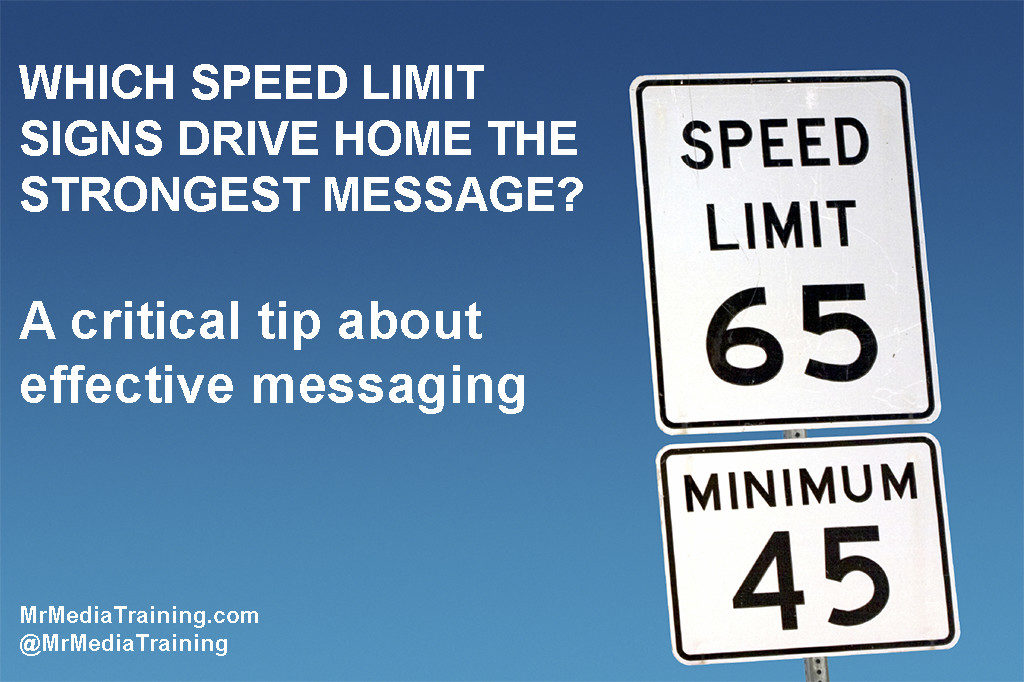Why You Should Be Careful With Declarative Statements
When musician Terence Trent D’Arby released his debut album in the late 1980s, he had immediate success with two top-ten hits: Wishing Well and Sign Your Name. It didn’t take long before his instant stardom went to his head: “My album is better than [The Beatles’] Sgt. Pepper’s,” he declared. The public disagreed; those were the only top-ten hits D’Arby ever had.
When Jay Leno took over The Tonight Show in 1992, competitor Arsenio Hall didn’t mince words: “I’m going to…kick Leno’s ass.” He didn’t. Leno soon became the undisputed king of late night and Hall was off the air within two years. (He returned to late night earlier this fall after a 19-year hiatus.)
In late 2011, Republican presidential candidate Newt Gingrich told ABC’s Jake Tapper, “I’m going to be the nominee.” He wasn’t; he won only two states. (His bombastic personality did help him land a co-hosting seat on CNN’s resurrected Crossfire, however.)
As these three examples illustrate, making bold proclamations can backfire, sometimes badly.
“But wait…didn’t you previously advise us to use declarative language?”
It’s true, I did. In The Media Training Bible, I gave the following three examples of times when spokespersons could—and should—use declarative language:
- You might not be able to say that a new drug will work, but you could say it’s the most promising new drug you’ve seen in your career.
- You might not be able to say that your company has never had a safety violation, but you could say you’ve never had a major incident at your plant.
- You might not be able to say that your nonprofit’s fundraising drive will solve the problem, but you could say that more people in your community have volunteered to help than ever before.
There’s a big difference between the three statements above and the three examples that opened this article. The three statements above are based solidly in fact—but stop short of bold predictions and hyperbole.
So yes, be bold. Make strong assertions. Go as far as the facts allow. But only go as far as the facts allow. If you go past that magic mark, your words will likely be used against you in future news stories—and the tone of those stories may not be particularly kind.
You’re going to sign up for my email list right this second! (Okay, that declarative sentence probably went too far.) But if you’d like to, here’s the link.




Agreed – but will a softer statement get you on the cover of EW (in the case of Arsenio Hall)? My impression is that making declarative statements (no matter how true they turn out to be in the long-term) is a PR technique that’s pretty useful if you need media coverage in that moment (e.g. in the case of Arsenio Hall, promoting his new show). While it does little for long-term credibility – and in retrospect, makes you look stupid — in the short-term, it’s effective. There are many exceptions, e.g. For public companies this is not a prudent technique because of possible SEC violations. However, for more “frivolous” PR stunts where the impact on stakeholders is minimal, this could work well.
Lisa,
Thank you for your comment – you raise a valid point and I agree with your conclusion. In show biz or sports settings, those types of declarative statements may occasionally be useful in situations in which ends justify the means (when landing short-term coverage is worth it, even if it comes with a minimal risk of longer-term embarrassment).
In Arsenio’s case, he would have landed the cover story in either case; the editors would have just had to find a different pull quote (or create their own juicier headline).
Thanks for reading!
Brad